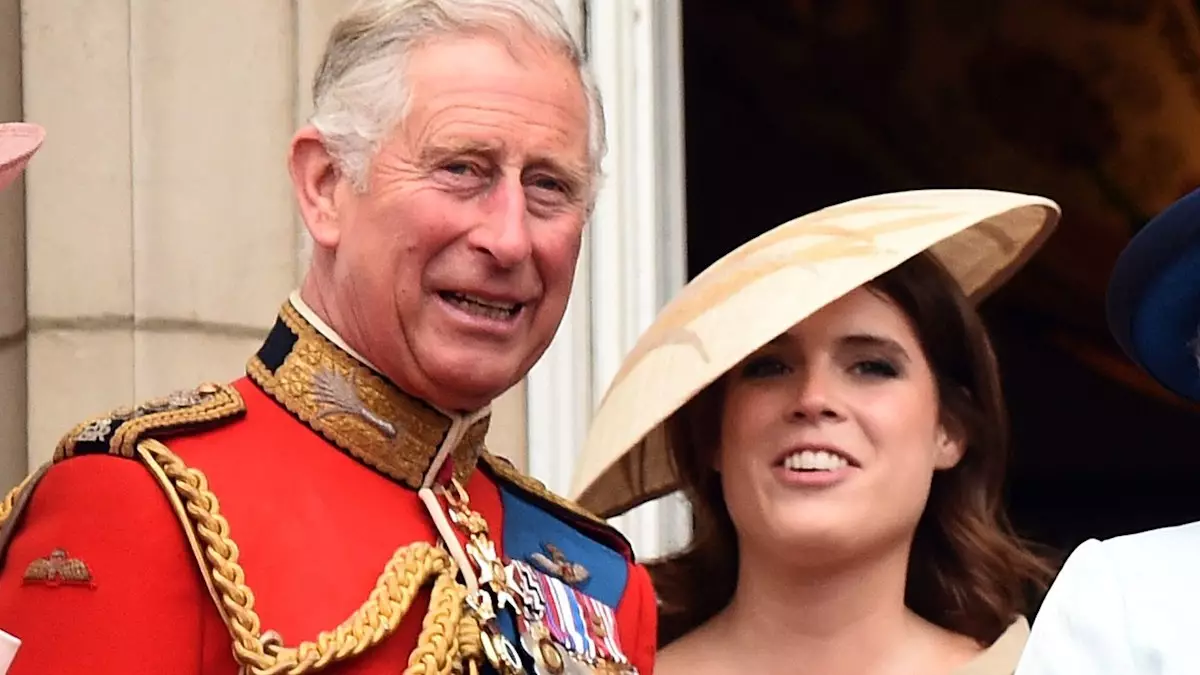In an unexpected turn of events, King Charles made a surprise appearance at Kensington Palace, charming onlookers who had gathered for a leisurely stroll in central London. Arriving by helicopter, Charles’s entrance was not only regal but also relatable, as he was immediately greeted by family. The King’s choice of transport—a sleek helicopter—spurred excitement, especially among children. This delightful moment reflects a juxtaposition of royal life with the everyday experiences of Londoners, adding a human touch to the often dystopian image of monarchy.
Charles’s arrival in a neatly tailored grey suit epitomizes the elegance associated with the British monarchy, but it was the casual, family-oriented moment that followed that truly stood out. Princess Eugenie’s husband, Jack Brooksbank, warmly welcomed the King, setting the tone for an afternoon imbued with familial love. The spirited interaction with his grandchildren, as the visibly excited boys got an exclusive look at the royal helicopter, further humanized the monarch, painting a picture of familial bonds that are perhaps understated in royal commentary.
A Day of Family Joy
The excitement was palpable as Jack Brooksbank took his two sons, August and Ernest, alongside two other children, for an impromptu lesson in aviation—or at least helicopter appreciation. Witnesses reported that the children dedicated roughly ten minutes to marveling at the helicopter, an education that is, in a way, unique to their royal upbringing. The joy displayed by the boys as they engaged with their father was infectious and emphasized the often-overlooked reality of royal existence; beneath the crown, there exists a family dynamic similar to that of any typical household.
What stands out in this scenario is not just the interaction between King Charles and his family but also the nurturing role Jack Brooksbank embodies. Ruffling the boys’ hair and whispering in their ears, Jack exemplifies modern fatherhood amidst the backdrop of monarchy—an important reminder that love, laughter, and familial connection transcend royal status. It’s uplifting to see a father engaging with his children in such simple yet profound ways.
The Effects of Royal Responsibilities
Interestingly, this public encounter occurred just a week after King Charles faced health concerns stemming from ongoing cancer treatment. This context adds depth to his visit; it illustrates the delicate balance between royal duty and personal well-being. Charles, often seen taking on his royal obligations with grace, showed that even a king must take time for family and recuperation. The juxtaposition of his royal responsibilities and personal challenges could evoke empathy, revealing a vulnerable side to a figure typically characterized by stoicism and authority.
The warmth of character and care, especially in times of adversity, showcases the importance of family ties. Highgrove Estate, another cherished retreat for the King, symbolizes his longing for peace amid turbulence. Highgrove has transformed into a personal sanctuary—a reflection of Charles’s passion for nature and environmental sustainability—further emphasizing how he finds solace away from the public eye. The King’s affection for this property illustrates a common human desire for a personal refuge where stressors of public life can be alleviated.
A Brief Respite from Public Duties
Despite the recent health issues, King Charles has swiftly returned to public engagements, demonstrating resilience. Hosting a significant community music reception at Windsor Castle, he continues to fulfill his royal obligations, embodying the unwavering spirit expected from a monarch. This seamless transition from a moment of personal crisis to a return to duty speaks volumes about the dedication that defines his reign.
The royal family, often ensconced in the grandeur of tradition, frequently displays lifelike moments that resonate with the public. In a society eager for connection, these poignant incidents act as reminders of the shared experiences between a monarch and his subjects. Through heartfelt family interactions and the balance of personal life amidst royal responsibilities, King Charles not only cements his role as a monarch but also enhances the image of the royal family in an ever-evolving modern world.

